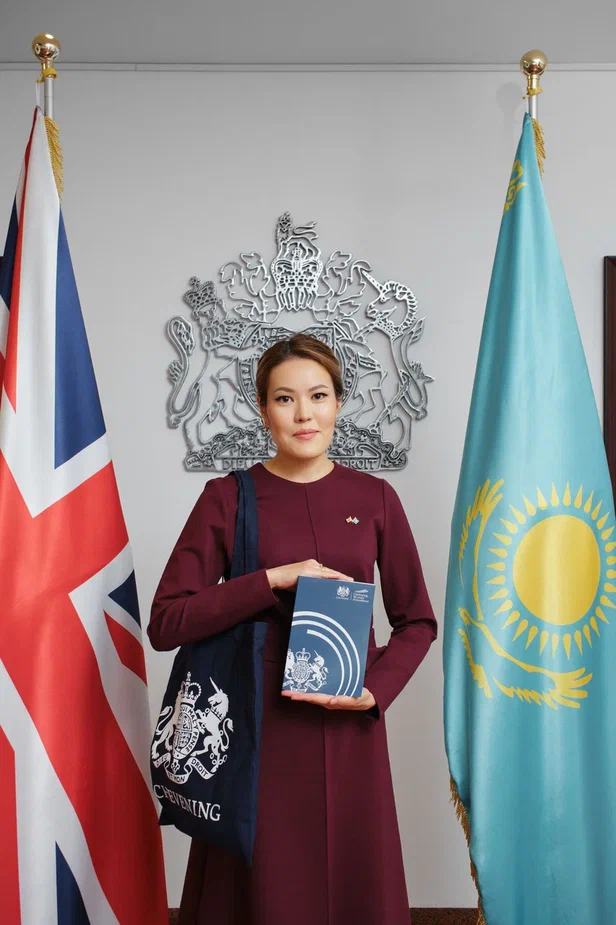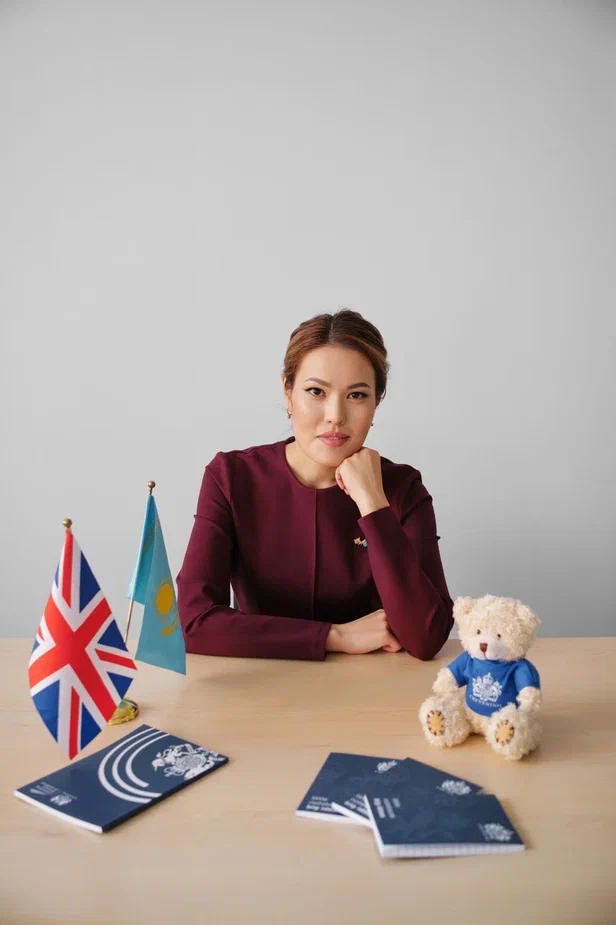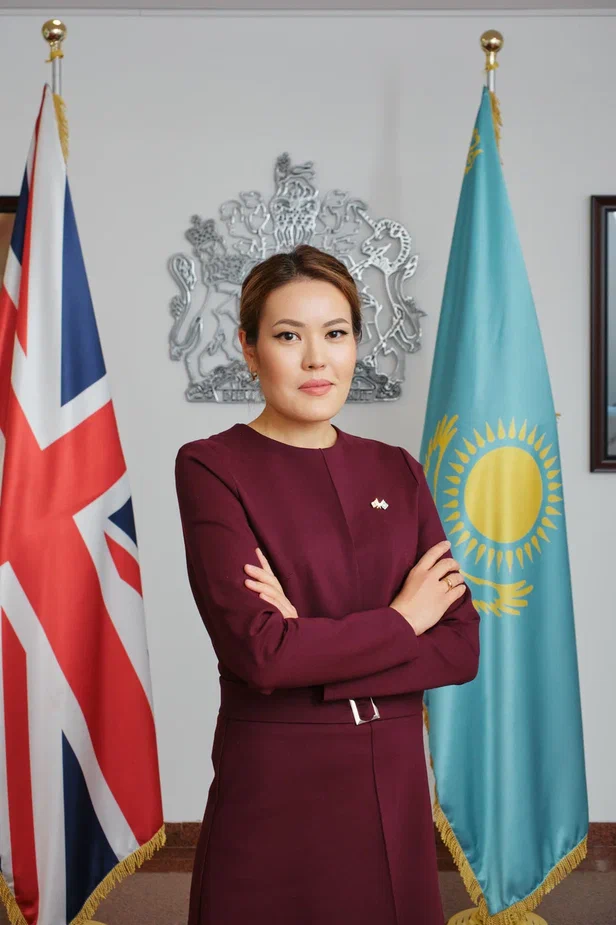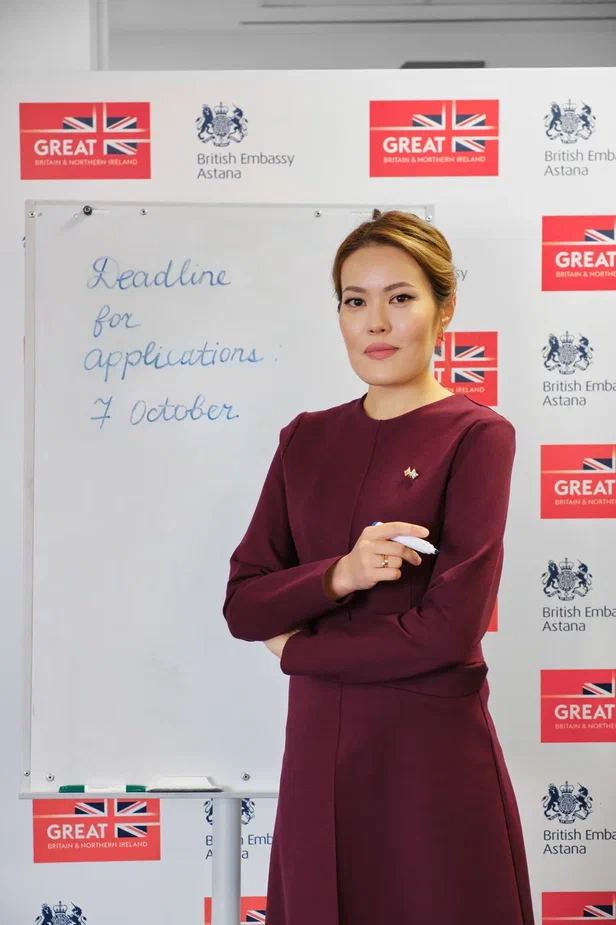Chevening is an international scholarship program of the UK government that supports young professionals and future leaders around the world. In this material, Aigerim Sultangereyeva, Head of Communications and Chevening Program Manager at the British Embassy in Kazakhstan, talks about the goals, new rules, and benefits of participating in the program.
Aigerim Sultangereyeva, Head of Communications and Chevening Program Manager, British Embassy in Kazakhstan

The Chevening Scholarship is a scholarship from the UK government that provides an opportunity to study for a one-year master’s program at a university in the United Kingdom.
Studying under this program is a great opportunity to experience a new culture, develop academic skills, and unlock your potential.
After completing their studies, graduates return to their home countries to apply the knowledge and skills gained in the UK to achieve positive change at home.

The Chevening Scholarship aims to identify promising young leaders from around the world who are committed to addressing current issues at the local, national, or global level.
Who can participate and what are the main requirements for candidates
The selection criteria for receiving a Chevening Scholarship include the following points:
— Be a citizen of a country whose citizens are eligible for the Chevening Scholarship; Kazakhstan is on this list.
— Have a bachelor’s degree that allows you to apply for a master’s program in the UK. You must have completed your undergraduate studies at least two years before the application deadline.
— Have at least 2,800 hours of work experience after completing your undergraduate studies. This is approximately equivalent to two years of work.
— Commit to returning to your home country for at least two years after completing the scholarship.
— Apply to three eligible master’s programs in the UK.

What changes have occurred in the program in recent years
There have been three major changes this year.
- Only work experience gained after completing your undergraduate degree will now count. If you graduated after October 2023, you will not be eligible to apply, as there has not been enough time to complete the required 2800 hours and demonstrate sufficient commitment to your field before the application deadline.
Post-graduation work experience may include full-time or part-time employment, volunteer work, and paid or unpaid internships.
- Updated essay questions now place a stronger emphasis on how your choice of course and university aligns with global priority areas such as:
— strengthening resilience in a world vulnerable to climate change
— enhancing security and stability in an uncertain world
— supporting the development of more inclusive and effective societies
- The word limit for essays has also been reduced from 500 to 300 words.

Preparation and process
Applications are open from August 5 to October 7. Afterwards, applications are reviewed based on eligibility criteria. From mid-October to January of the following year, independent expert panels evaluate all eligible submissions. By mid-February, a shortlist is prepared and candidates are selected for interviews. Interviews take place from March to April, and by mid-June, the list of successful candidates is finalized.
If you are invited to an interview and pass successfully, you will be required to provide an unconditional offer from a UK university. The deadline for obtaining and submitting at least one such offer is July 9, 2026. The academic year then begins in September–October.
First and foremost, you need to clearly understand why you want to study under the Chevening program and how the education you receive in the UK can contribute to positive change after your return home.
Special attention should be paid to writing your essays. You must not use other people’s work or present AI-generated content, such as that created by ChatGPT, as your own — otherwise, your application will be disqualified. Chevening uses tools to detect plagiarism and AI-generated material.
On the official page of the British Embassy in Kazakhstan, @ukinkz, live sessions are held with Chevening alumni, where guests answer questions about the program.

Opportunities and benefits of the program
In addition to world-class education, I would highlight the opportunity for complete immersion in British culture and the development of key skills — project management, strategic thinking, and networking with other scholars. The Chevening program provides access to a global alumni network of more than 60 000 people worldwide, offering unique opportunities for professional and personal growth.
Responsibilities of scholars
Scholars are required to return to their home country for at least two years after completing their studies in the UK. This requirement ensures that the knowledge and experience gained are used for the development of their home region or country. As Chevening graduates are viewed as future leaders, they are expected to use their education to promote positive change in their professional field, community, or country.
I wish success to everyone who has already applied for the Chevening program. For those still considering it, I strongly encourage you to take advantage of this unique opportunity!